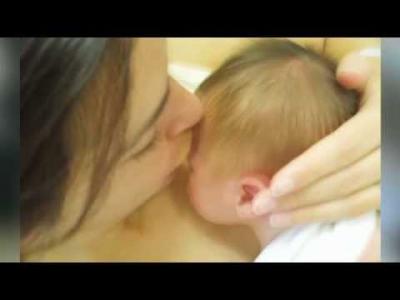"My pregnancy was awesome," Elisa Rudgers remembers. "Completely healthy. I made my friends jealous it was such a great pregnancy." Prenatal tests were performed every step of the way, all of which came back with good results.
However, her delivery was extremely difficult. Rydr was stuck for hours until doctors were able to get him out safely. Rydr was missing milestones associated with brainstem function from day one. The brainstem is responsible for maintaining higher functioning areas of the brain, such as regulation of breathing, sucking, and swallowing, which were impossible for Rydr. At about 11 months old, Rydr was diagnosed with cerebral palsy, a brain injury that can affect speech, fine motor skills, and the ability to chew and swallow food.
"When we decided to store Rydr's cord blood, we actually didn’t know that much about it," says Elisa. With such a comfortable pregnancy, she and her husband, Ric, didn’t see an immediate need to bank Rydr's newborn stem cells, but the more they looked into cord blood banking, the more they thought, "Why wouldn't we do this?"
Four months after Rydr's diagnosis, the family arrived at Duke University where experimental infusions using his own cord blood stem cells would take place once a year over the next three years. At the first visit, Rydr was more than a year old, and was incapable of sitting up on his own, which most babies do at 6 months.
Three months after the first infusion, the little boy was crawling. After the second infusion, one year later, improvements continued. His verbal skills began developing and soon he was walking. Rydr received his third and final infusion in 2011. To date, his speech and motor control continues to improve. "He can walk, he can jump. He’s moving around the house so much faster than I would have ever thought."
The Rudgers are still attending several different kinds of physical therapy sessions per week. Rennie Lee, lead physical therapist at the Sutter Medical Foundation and Rydr's therapist since before his first infusion, sees a huge improvement in his overall development. "He is now learning skills in a much faster capacity than a child who has, what I would consider, the same level of neuro-motor impairment."
Although Rydr’s family and therapists have noticed these improvements, researchers continue to investigate the role that cord blood may play in treating the effects of cerebral palsy.
Full story and video here.

 Researchers regrow corneas using adult human stem cells
Researchers regrow corneas using adult human stem cells